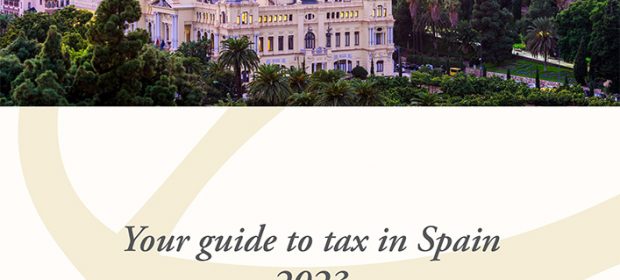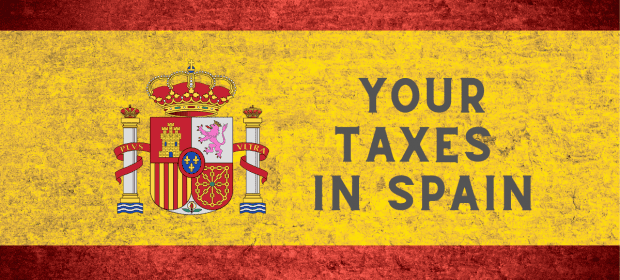Investment income and capital gains
As of 1st January 2018, interest from savings, income from investments in the form of dividends and other non-earned income payments stands unchanged and are taxed at a flat 26%. Realised capital gains are also taxed at the same rate of 26%.
(Interest from Italian Government Bonds and Government Bonds from ‘white list’ countries are still taxed at 12.5% rather than 26%, as detailed above. This is another quirk of Italian tax law as this means that you pay less tax as a holder of Government Bonds in Pakistan or Kazakhstan, than a holder of Corporate Bonds from Italian giants ENI or FIAT).
Property Overseas
Property which is located overseas is taxed in 2 ways. Firstly, there is the tax on the income and, secondly, a tax on the value of the property itself.
The income from property overseas.
Overseas NET property income (after allowable expenses in the country in which the property is located and taxed) is added to your other income for the year and taxed at your highest rate of income tax.
I would like to clarify what I mean by ‘net property income’. If we take the UK as an example, this means that you MUST make a tax declaration in the UK first. The UK property is a fixed asset in the UK and therefore must be treated to UK tax law before any declaration in Italy. After you have deducted allowable expenses in the UK and paid any tax liable in the UK, the NET property income figure must be submitted in your UK tax return.
Where many properties are generating all of your income this can prove to be a tax INEFFICIENT income-stream for residents in Italy. It is better to have a diversified income stream to maximise tax planning opportunities.
I will also add some comments here in that I often hear from people who are told by their commercialista that no expenses can be deducted in Italy. This is correct. What they mean (or what I am interpreting that they mean) is that you cannot deduct the UK allowable expenses directly through the Italian tax return. This has to be done first in the UK tax return, in this example. This is correct process. However, it does not mean that the expenses cannot be deducted per se. It just means they have to deducted in the revelant tax return first before reporting the NET result in Italy.
** Tax credits will be given for any tax paid in another country in order to avoid double taxation, where a double taxation treaty exists with Italy.
2. The other tax is on the value of the property itself, which is 0.76% of the value. (IVIE)
Value must be defined in this instance. For EU based properties, the value is the Italian cadastral equivalent. In the UK that would be the council tax value NOT the market value. This value is always expressed asa range of values rather than a specific one. You will find that the market value will, in most cases, be more than the cadastral equivalent value.
For properties located in other European countries, for example France, you will find that they may have a similar ‘cadastral’ value. Where this value is calculated in the same way as Italy, a tax credit is offered against any IVIE tax payable in Italy. The tax credit is not applicable to UK properties as the tax is due on the occupant of the property and not the owner.
In properties located outside the EU, the value for tax purposes is defined as the market value of the property ONLY where evidence cannot be provided of the purchase value of the property, in which case this would be used instead.
** BREXIT FINANCIAL PLANNING OPPORTUNITY**
After the UK exit from the EU, the cadastral equivalent value of a property in the UK will revert to the original purchase price, where evidence can be provided. Given that UK councils are likely to review their council tax bands in the comings years to fund shortfalls in their accounts, this could mean less tax to pay in Italy.
Taxes on Assets
1. Banks accounts and deposits
A very simple to understand and acceptable €34.20 per annum is applied to each current account you own. This includes fixed deposits, short term cash deposits, CD’s etc. The charge is the equivalent of the ‘imposta da bollo’ which is applied to all Italian deposit accounts each year.
The rules regarding whether you need to declare the account can be found on my blog post ‘IF IN DOUBT, DECLARE THE ACCOUNT‘
I am of the view that if you have a bank account in the UK with more than €5000 in it and/or a regular income being credited to it, then you should declare the bank account in Italy regardless of the tax reporting requirements. For the sake of the tax of €34.20, it is not worth taking the risk.
2. Other financial assets
The charge, IVAFE, is levied on other foreign-owned assets which covers shares, bonds, funds, portfolio assets, cryptocurrency, gold deposits, art work or most other types of assets that you may hold. The tax on these is 0.2% per annum based on the valuation as of 31st December each year.
Also remember that if you have a portfolio of managed assets that are NOT held in an a suitably compliant Italian Investment bond, then all the separate funds/shares/assets are considered “individual” and MUST be reported individually on your tax return each year. That also includes reconciling any income/dividend/distribution payments that have been made and also any capital gains that have been realised. A reference to the Banca D’Italia exchange must be made for each transaction on the correct date.
3. Pensions
It is worth noting here that for any UK style private pension or occupational pension arrangements, where the pension structure is an irrevocable trust, then the tax treatment is 2 fold.
a) any income that you draw from the pension each year is taxable at your highest rate of income tax in Italy.
b) the fund itself needs to be reported under ‘monitoraggio’ of trusts section of the Quadro RW. Failure to do so could result in fines. Although highly unlikely, you never can be sure.
This is a concise list of the taxes that affect most of you.








